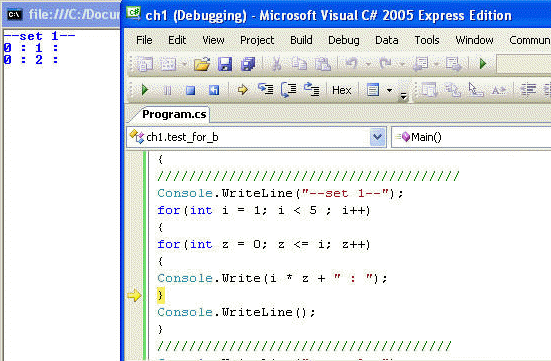- Nested loop will complete first before sending the handle to parent
loop;
- unless, nested loop has an check back or exit condition that checks
some parameter in the parent loop. Set -1 and set -2 are an example of
that condition.
- However, the above condition was created with either <= or < operator. With <= operator you let the nested loop run when value of a local variable is less than or equal to the value of a variable in parent.
- In set three, run condition in the nested loop is independent of parent loop( z = 4); therefore the loop with run four times multiplying (i * z ) for time times, the print out will depend on the value of i in the parent loop
- unless, nested loop has an check back or exit condition that checks
some parameter in the parent loop. Set -1 and set -2 are an example of
that condition.
import java.io.*;
// javac test_for_b.java
public class test_for_b
{
public static void main(String args[])throws IOException
{
//////////////////////////////////////
System.out.println("--set 1--");
for(int i = 1; i < 5 ; i++)
{
System.out.println("\t round start --: " + i);
for(int z = 0; z <= i; z++)
{
System.out.print(i * z + " : ");
}
System.out.println();
System.out.println("\t round end --: " + i);
}
/////////////////////////////////////
System.out.println("--set 2--");
for(int i = 1; i < 5 ; i++)
{
System.out.println("\t round --: " + i);
for(int z = 0; z < i; z++)
{
System.out.print(i * z + " : ");
}
System.out.println();
System.out.println("\t round end --: " + i);
}
////////////////////////////////////
System.out.println();
System.out.println("--set 3--");
for(int i = 1; i < 5; i++)
{
System.out.println("\t round --: " + i);
for(int z = 0; z <= 4; z++)
{
System.out.print(i * z + " : ");
}
System.out.println();
System.out.println("\t round end --: " + i);
}
///////////////////////////////////
}
}
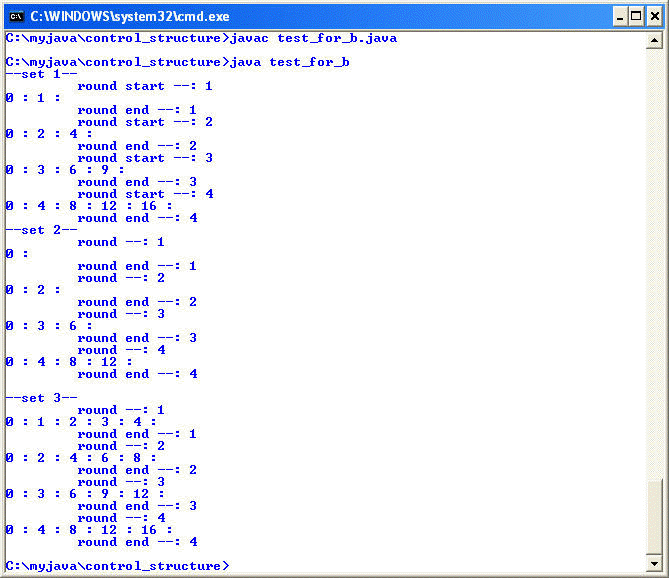
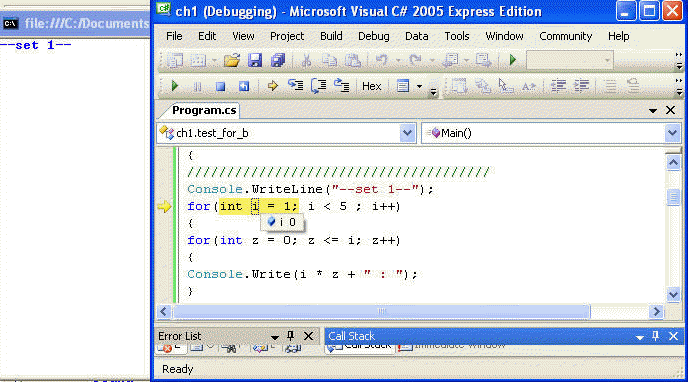
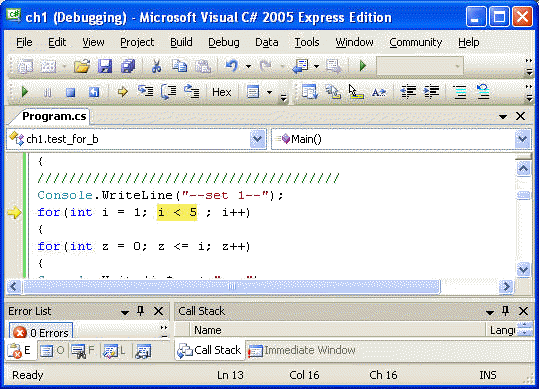
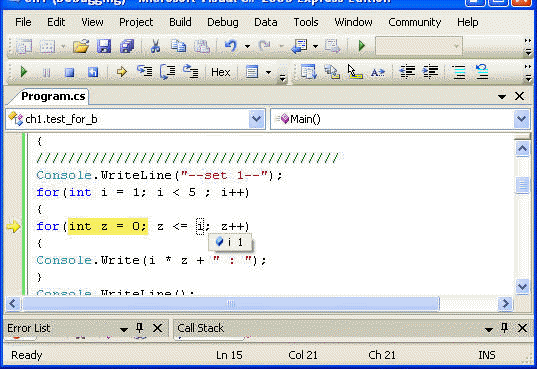
The illustration shows a condition where value of z = 0, when i= 1;
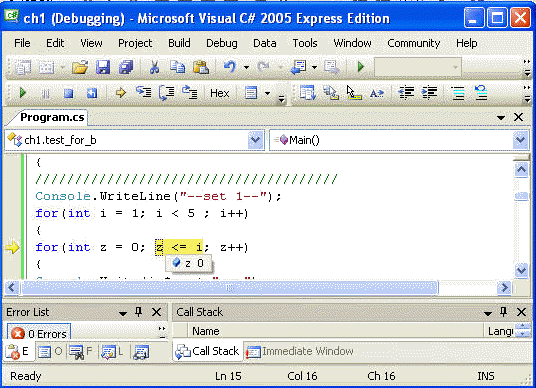
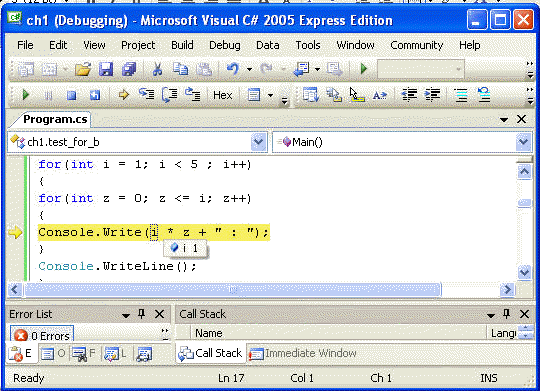
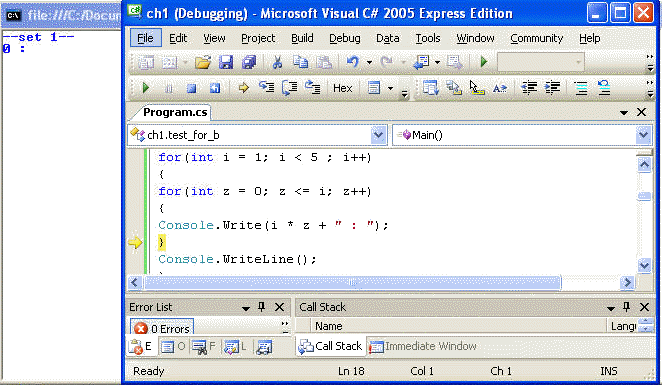
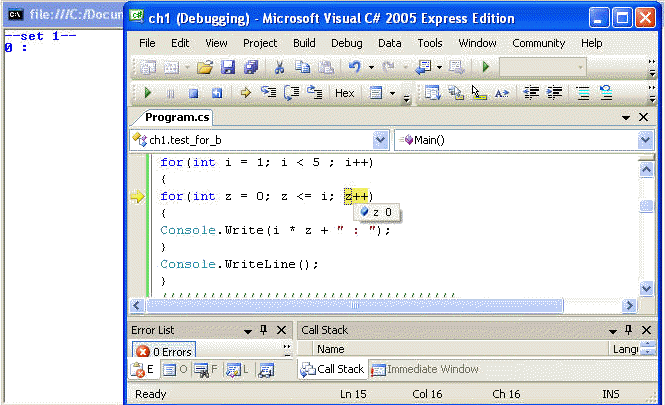
And finds the value of z is 1 and that is still equal to the current value
of i ( i= 1);
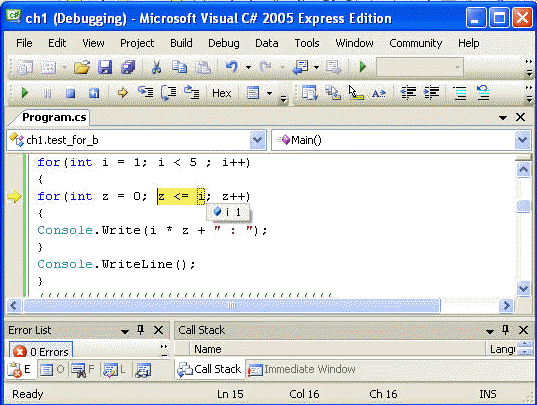
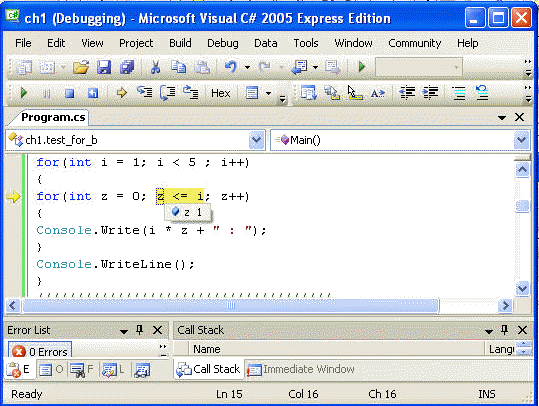
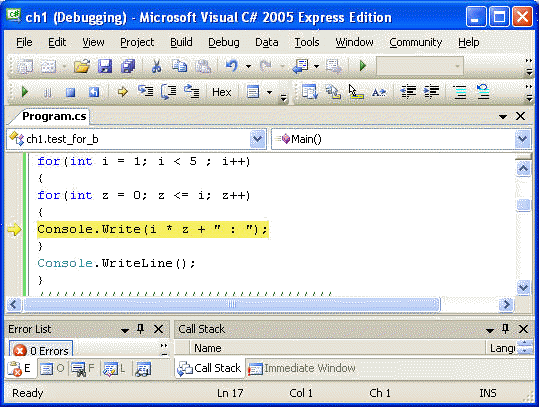
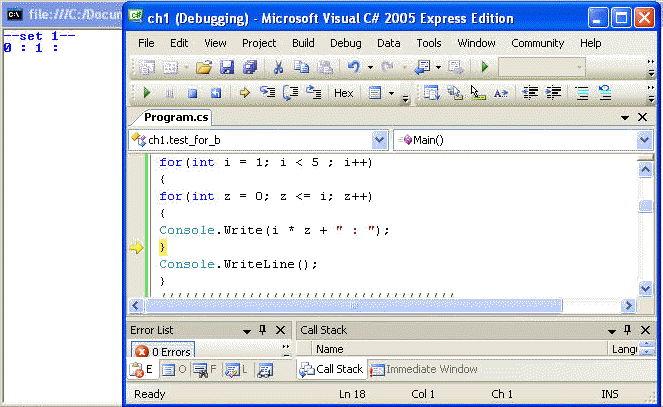
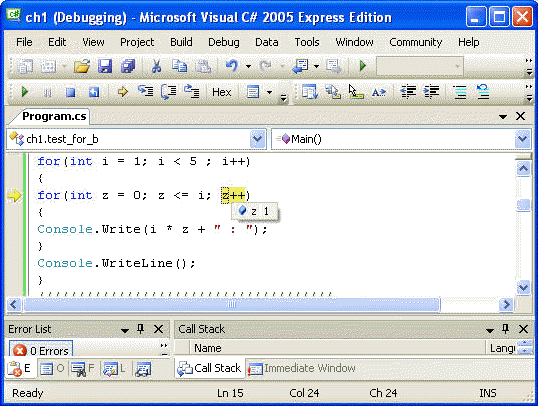
However, this round the value of z increases ( z = 2) exceeds the current value of i( i=1);
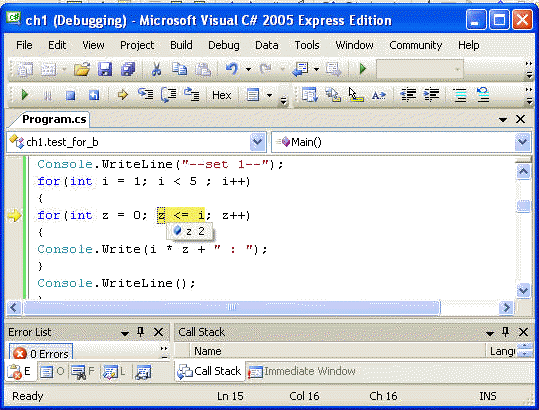
Therefore, as per condition, compiler exits the loop, and
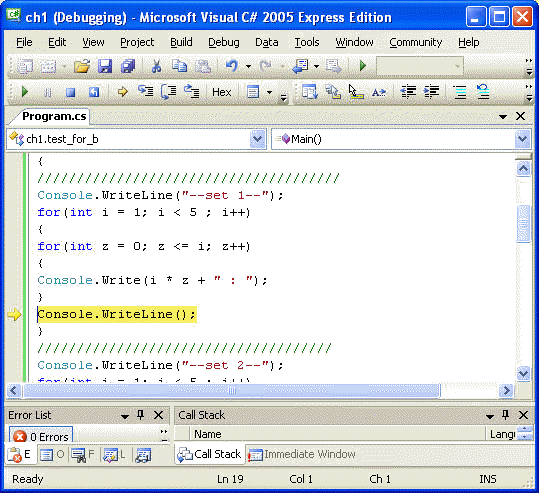
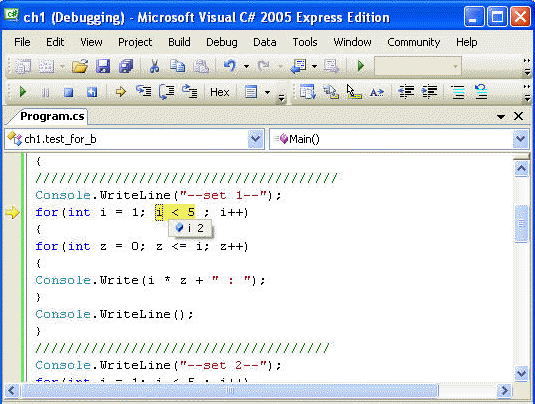
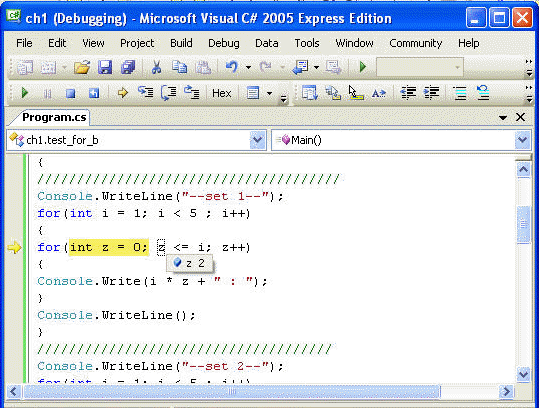
However, as in the loop, the value of z is reset to 0; (where as i = 2,
meaning
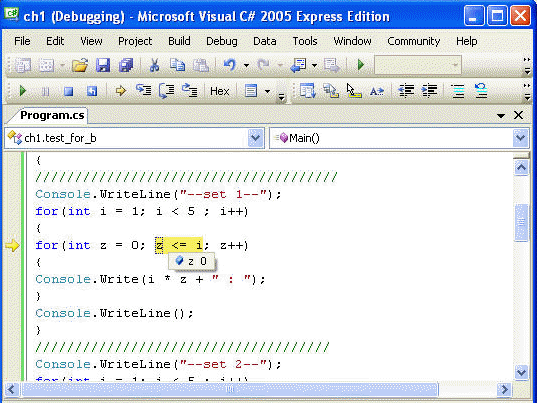
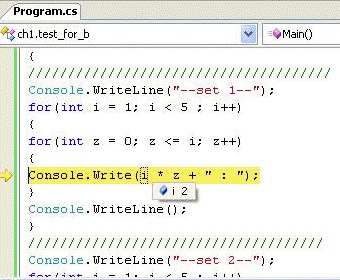
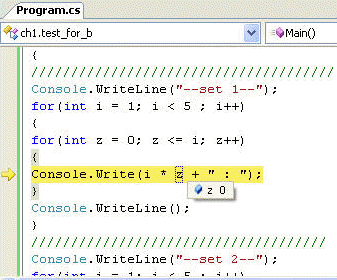
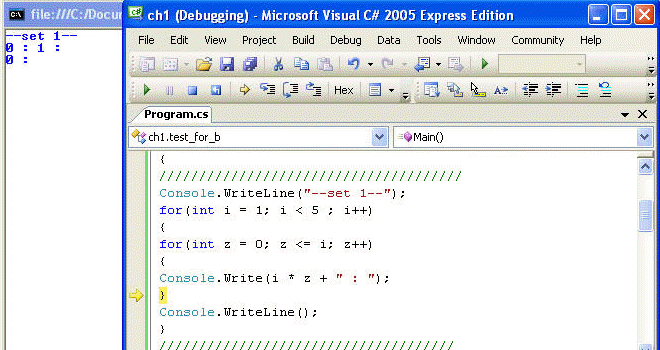
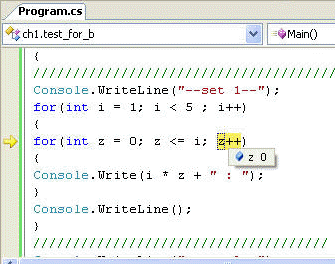
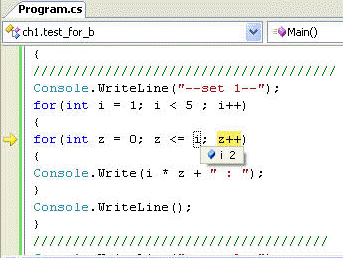
at this point the values of i and z are 2 and 1 respectively;
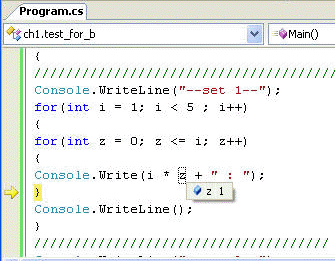
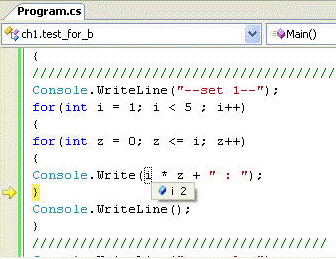
we get the following output
